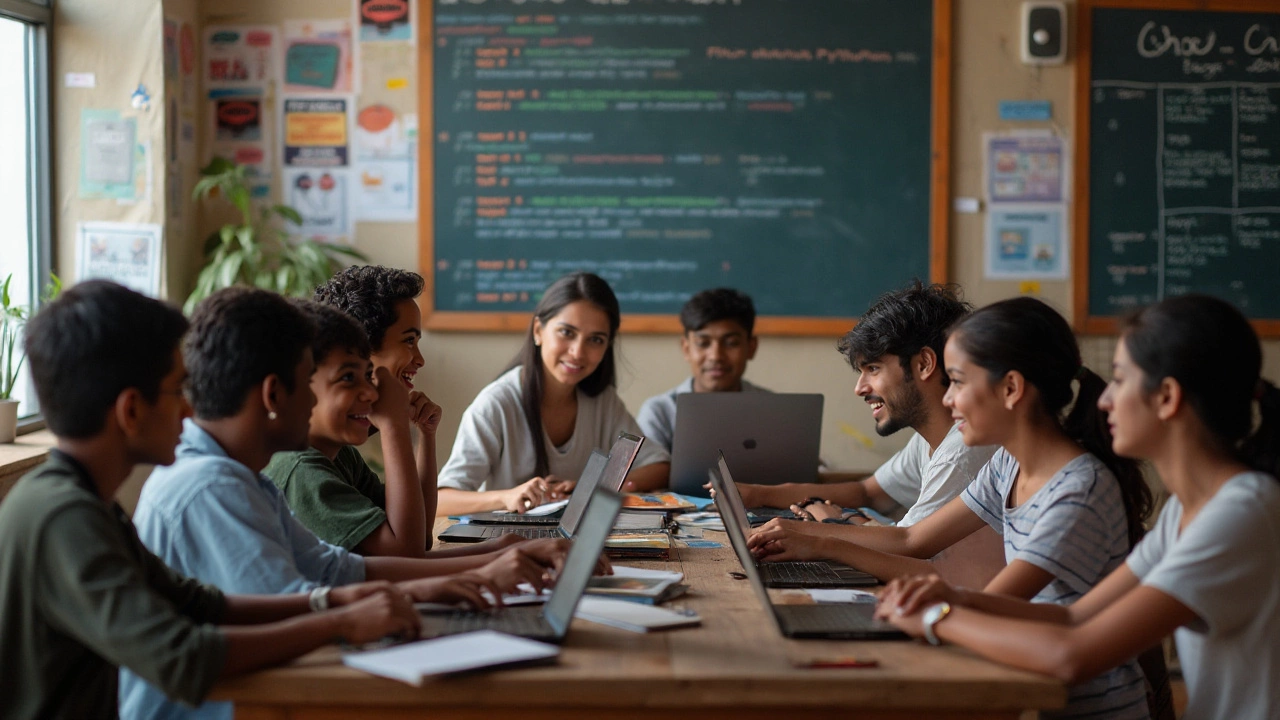Learn Python: Simple Steps to Start Coding Today
Did you know you can write a useful program in under an hour? Python makes that possible because it reads like plain English and needs almost no setup. If you’re studying in India, all you need is a laptop, an internet connection, and a bit of curiosity.
Why Python is Great for Beginners
First, Python is free. You can download it from python.org or use an online editor like Replit—no licence fees, no hidden costs. Second, the syntax is short; you write less code to do more, which keeps frustration low. Third, it works everywhere—Windows, macOS, Linux, and even Android with apps like Pydroid.
Because schools and coaching centers are adding Python to their curricula, learning it now gives you a head start for future exams and job interviews. Employers often list Python as a required skill for data analysis, web development, and automation roles, so mastering the basics now opens many doors.
Your First Python Program in Minutes
Open your editor and type this single line:
print("Hello, world!")
Save the file as hello.py and run it with python hello.py. You’ll see the words “Hello, world!” appear—your first successful program.
Now try a tiny calculator. Copy the code below:
a = 5
b = 3
print("Sum:", a + b)
Running it shows Sum: 8. Notice how easy it is to store values and perform operations. This pattern—assign, compute, display—is the backbone of every Python script.
Next, explore loops. A for loop lets you repeat actions without rewriting code:
for i in range(1, 6):
print(i)
This prints numbers 1 through 5, one per line. Loops are perfect for processing lists, reading files, or scraping data.
Once you’re comfortable with variables, loops, and functions, you can start building small projects. Try a quiz app that asks two questions and checks answers, or a simple budget tracker that adds expenses.
Remember, practice beats theory. Set a goal to write one tiny program each day. Use free resources like the official Python tutorial, YouTube channels (GeeksforGeeks, CodeWithHarry), and Indian forums such as Stack Overflow Hindi.
When you hit a roadblock, search the exact error message—most programmers have faced it already. The community is quick to help, and you’ll learn how to debug effectively.
Finally, keep your code tidy. Use meaningful variable names, add comments where needed, and follow PEP 8 guidelines for readability. Clean code not only helps you but also impresses future employers.
By following these steps—install, write a basic script, experiment with loops, and build tiny projects—you’ll be on a solid path to becoming a confident Python programmer. Keep coding, stay curious, and watch how quickly you can turn ideas into working programs.
Mastering Python: A Comprehensive Guide for Beginners
Learning Python can vary in time depending on a person's prior experience and the amount of time they can dedicate to studying. Python, being a versatile and beginner-friendly language, attracts a variety of learners. Through structured guidance and practical experience, mastering Python becomes achievable within months. The journey can be enriched by utilizing diverse resources like online tutorials, books, and coding bootcamps. With consistent effort, one can gain proficiency in Python and eventually leverage it in real-world applications.
read more